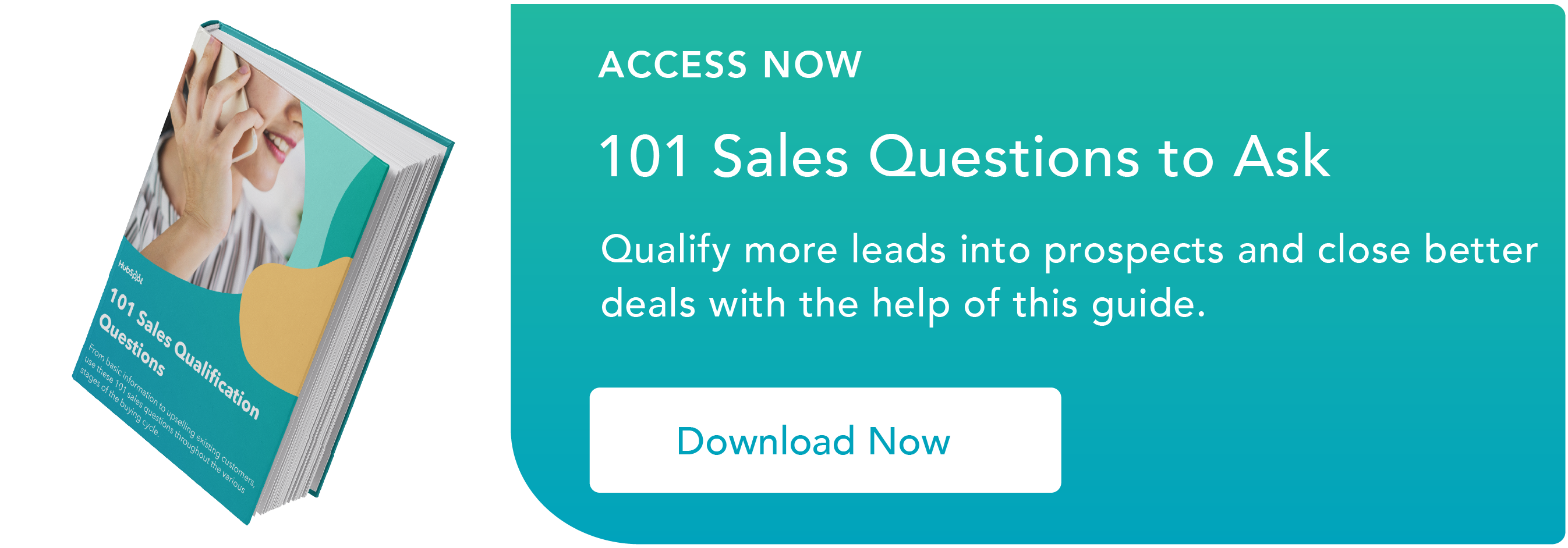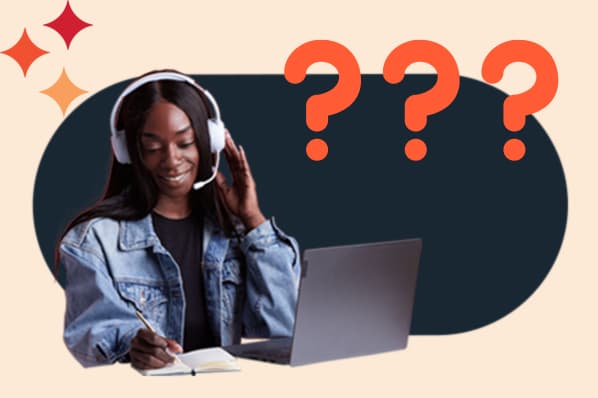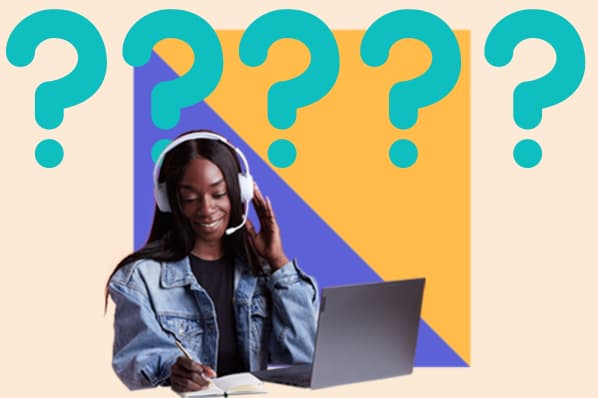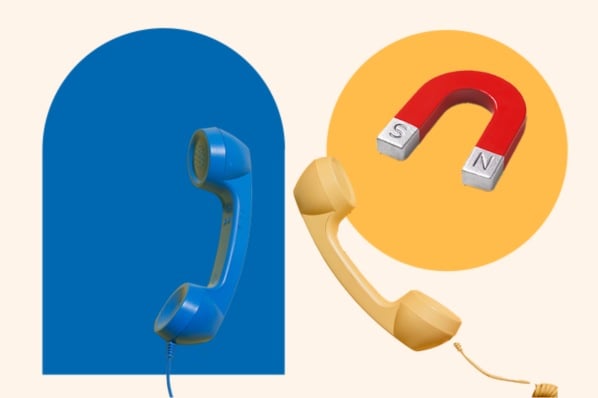A single open-ended question can change the entire course of a deal. Salespeople can pose them to get their prospect to open up, learn more about their needs, objectives, and pain, discover new details, build rapport, make them feel understood, and get them to think about their situation in a new light.

But reps who have eliminated closed-ended questions from their repertoire might want to reconsider. Although open-ended questions are powerful and versatile, they’re not the end-all, be-all of sales questions. Prompts that can be answered in a single word or short phrase have their place as well during the sales conversation.
For maximum power and impact, salespeople should opt to ask closed-ended questions in these five situations.
1) To Confirm What They’ve Heard
To show her prospect she’s been paying attention, the rep should put what she’s just heard in her own words. But she shouldn’t stop there: It’s crucial to confirm that she’s understood him and they’re on the same page. To do so, the rep should ask a closed-ended question like, “Did I communicate that effectively?”, “Do you believe I understand what you have shared with me?”, “Does that sound accurate to you?”, or “Did I miss anything?”
Here’s an example of this technique in action:
Rep: “I’m hearing that you’re worried about hitting the month-over-month growth target your regional store manager set. Although you saw healthy growth in June, July is usually a slow month for big-ticket furniture sales. You’re looking for some new ways to promote foot traffic and encourage multi-item purchases. Does that sound about right to you?”
Prospect: “Yes.”
If the prospect feels the rep has missed essential information or misinterpreted the situation, they’ll say so. The salesperson should follow up with an open-ended question such as, “Would you mind explaining what I left out or got wrong?”
2) To Keep the Prospect Engaged and Test Their Understanding
The buyer might have no idea what a salesperson is talking about, but he might be self-conscious about speaking up and saying, “I’m a little lost.” That’s not good for the rep: Confused prospects don’t usually see the value of the product, which means they won’t buy.
To avoid this outcome, salespeople should frequently check in with their prospects to make sure they understand. As a bonus, this step makes presentations and demos feel more interactive and two-sided, leading to deeper prospect engagement.
Reps should steer clear of, “Does that make sense?” This question can come across like they’re questioning their prospects’ ability to comprehend the content, says PandaDoc VP of sales Jared Fuller.
“Do you have any questions?” is a judgment-free alternative. “Did I explain that to your satisfaction?” is another option, as it puts the onus on the rep to provide clarity rather than the prospect to understand.
3) To Lock Down the Next Steps
Salespeople should use closed-ended questions at the end of the call or meeting to take control of the conversation and confirm the next steps. If they ask an open-ended question, they’ll be leaving this step up to their prospects -- which will make reps seem insecure, unsure, and less credible.
To see the difference a closed-ended question can make, take a look at these two exchanges:
Open-ended question:
Rep: “What do you think about doing a demo next Friday at noon?”
Prospect: “I’m not sure. I should talk to my manager about our budget before we go any further.”
Closed-ended question:
Rep: “Are you free next Friday at noon for a demo?”
Prospect: “Yes, I’m available.”
4) To Solicit More Specific Answers
When the rep is looking for a specific detail, an open-ended prompt may steer her away from the information she needs. Closed-ended questions, on the other hand, can help the salesperson hone in on the necessary answer.
Here are several examples:
- “Will you be making a decision this month?”
- “How many people are involved in the buying process?”
- “Have you made purchases like this before?”
- “Is X still your biggest priority?”
- “Are you looking for X feature?”
- “Would you like hear more about X?”
Salespeople should limit their use of these types of closed-ended questions. If they ask a series of closed-ended questions, their prospect might feel like they’re being interrogated. In addition, relying too heavily on these prompts makes it harder for reps to learn information they didn’t anticipate.
5) To Nudge Prospects Toward a Position
Salespeople can use closed-ended questions to encourage vague or wishy-washy buyers to take a stance. For example, suppose the rep is struggling to gauge her prospect’s reactions during the demo. She could ask, “Do you like what I’ve shown you so far?” or “Could you see these features helping you accomplish [prospect’s main goal]?”
These narrow questions are harder for the prospect to evade than an open-ended one such as, “What are your thoughts so far?”
If the buyer reveals he’s not impressed, the rep can take a new tack. If he says he’s interested in the features he’s seen so far, she can continue with her current strategy. Either way, prompting her prospect to take a firm position helps the salesperson present more effectively.
Other questions in this category include:
- “If we could find a way to deal with [objection], would you sign the contract on [set period in time]?”
- “Ready to move forward? I can send over the contract right now.”
- “Does it make sense to continue the conversation?”
- “Do you feel confident in [product’s] ability to solve [business challenge]?”
Reps should maintain a careful balance between open-ended and closed-ended questions. Giving the prospect freedom to talk and posing more narrow prompts in response will give the conversation a natural rhythm and help buyers and sellers reach a mutually beneficial conclusion.
![Free Download: 101 Sales Qualification Questions [Access Now]](https://no-cache.hubspot.com/cta/default/53/e97d6603-b40e-4085-ad55-0074b7351ead.png)

![21 Signs Your Buyer Is a Poor Fit [Sales Process Checklist], According to HubSpot's Former Sales Director](https://blog.hubspot.com/hubfs/Bad fit checklist.jpg)






![What a Client Intake Form Is & What It Should Look Like [Template]](https://blog.hubspot.com/hubfs/CLIENT INTAKE FORM (1).jpg)

